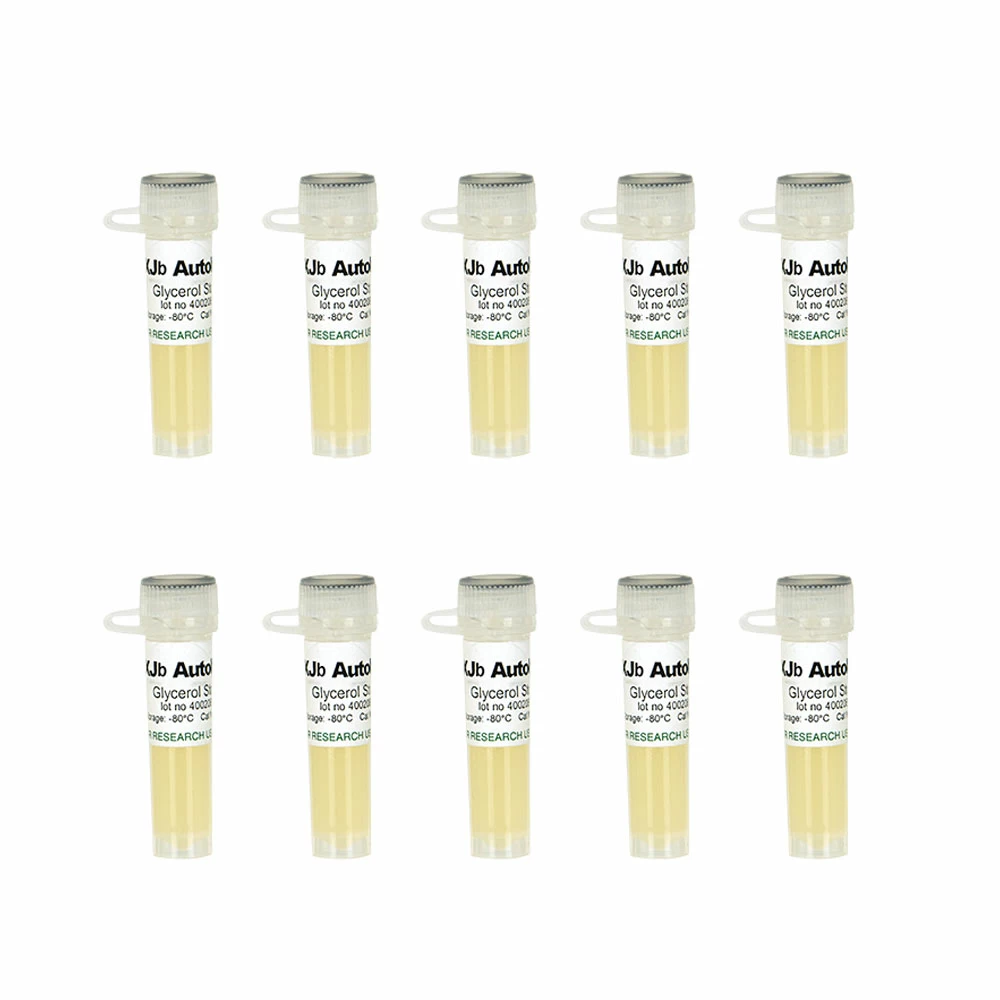Cat #: 11-245B
Zymo Research T3051 Mix & Go! XJb (DE3) Autolysis Competent Cells, Zymo Research, 10 x 100 µl/Unit



Cat #: 11-245B
Zymo Research T3051 Mix & Go! XJb (DE3) Autolysis Competent Cells, Zymo Research, 10 x 100 µl/Unit
Zymo Research
10 x 100 µl/Unit
Brand: Zymo Research- XJb is not optimal for DNA extraction.
- This strain is RecA positive.
- XJb is ideal for recombinant protein expression. It lacks Lon and OmpT proteases, leading to higher protein yields.
- Fast: 80 - 90% of E.coli are lysed in only 10 minutes after harvesting.
- High Transformation Efficiencies: Achieve 10^8 - 10^9 transformants per µg of plasmid DNA.
- DE3 Lysogen: Encodes the T7 polymerase for expressing recombinant proteins under the control of the T7 promoter.

$451.61
Login To Access Your Institutional Price
Zymo Research
10 x 100 µl/Unit
Brand: Zymo Research- XJb is not optimal for DNA extraction.
- This strain is RecA positive.
- XJb is ideal for recombinant protein expression. It lacks Lon and OmpT proteases, leading to higher protein yields.
- Fast: 80 - 90% of E.coli are lysed in only 10 minutes after harvesting.
- High Transformation Efficiencies: Achieve 10^8 - 10^9 transformants per µg of plasmid DNA.
- DE3 Lysogen: Encodes the T7 polymerase for expressing recombinant proteins under the control of the T7 promoter.
While there are many cell lysis methods available to scientists, none of these methods combine all the ideal features for simple, efficient, economical, and gentle lysis of E. coli cells. The E. coli XJ autolysing strains from Zymo Research were engineered to address this problem. Mild expression of a chromosomally encoded bacteriophage ? R gene, encoding the ? lysozyme, also known as ? endolysin, is induced during growth. Cells are harvested intact while the peptidoglycan layer of the cell walls has been protected from digestion by the cytoplasmic membrane. The membrane is, however, amenable to disruption by a brief physico-chemical stress such as a freeze-thaw cycle after harvesting the cells.
The XJ Autolysis™ method is highly efficient and takes only minutes (unlike traditional multiple freeze-thaw cycles). It can be applied to any number of samples without increasing processing time and labor (unlike sonication or French-press), is reliable and repeatable (unlike lysozyme treatment), and finally, is fully compatible with a wide range of buffers. Additionally, it does not require use of any potentially interfering components such as detergents, commonly found in various lytic buffers. They are also applicable for nucleic acid purification, and available with a DE3 lysogen encoding the T7 polymerase for expressing recombinant proteins driven by the T7 promoter.
Enjoy our products? Leave a review and let us know.

